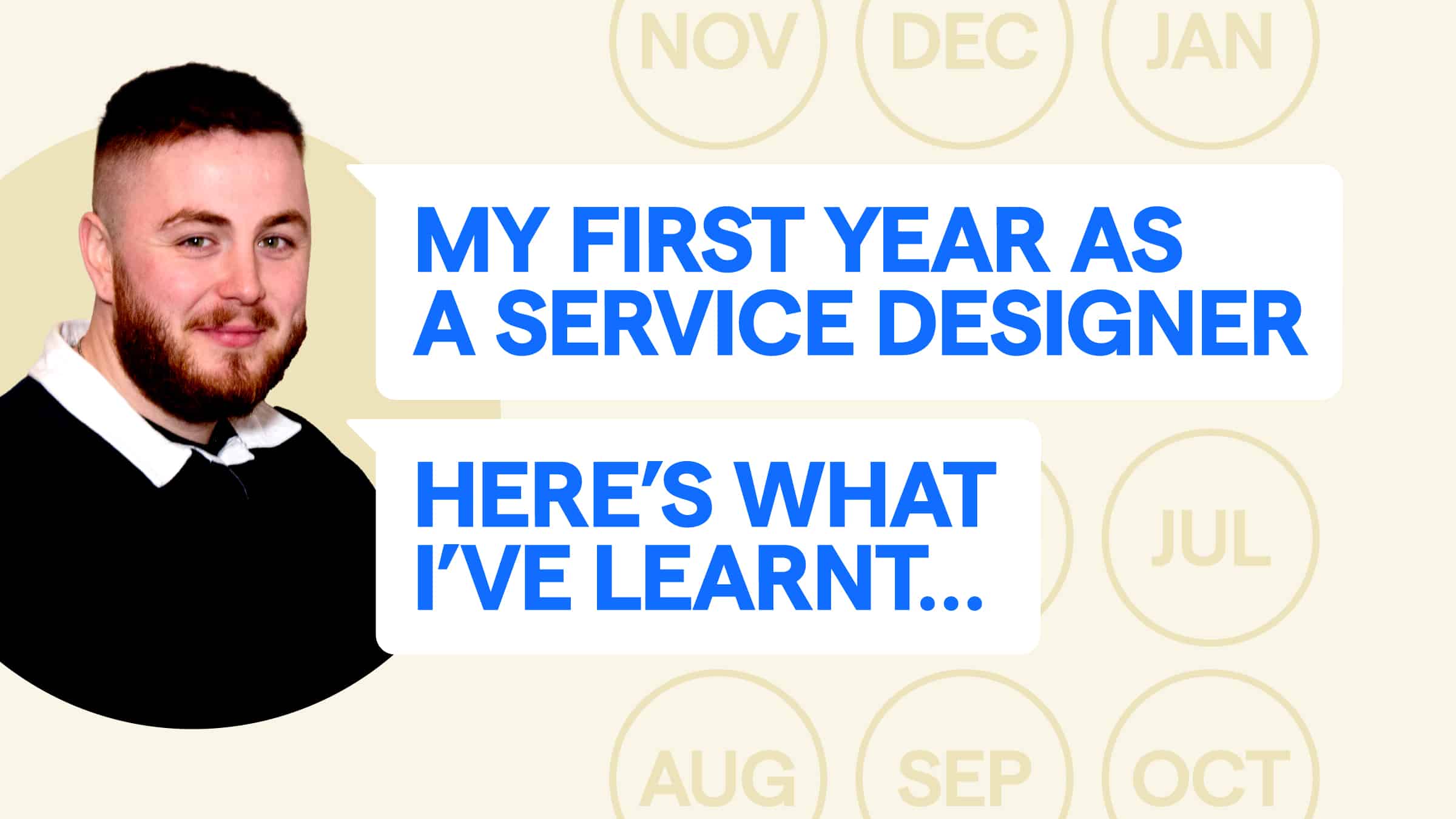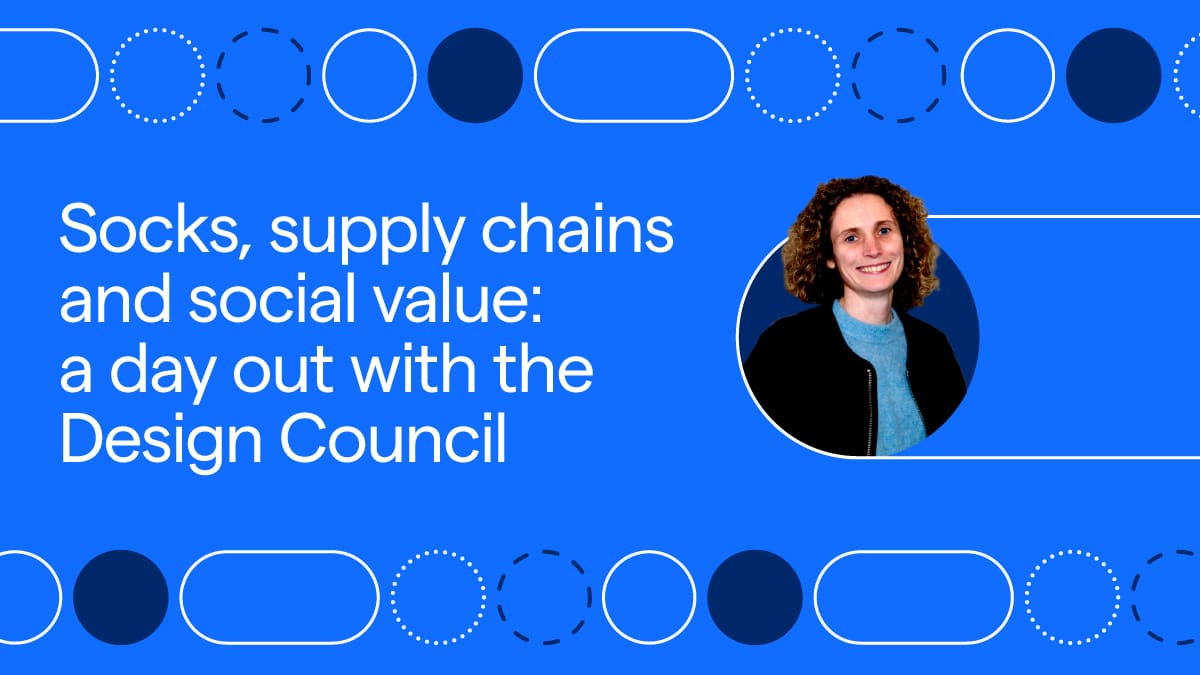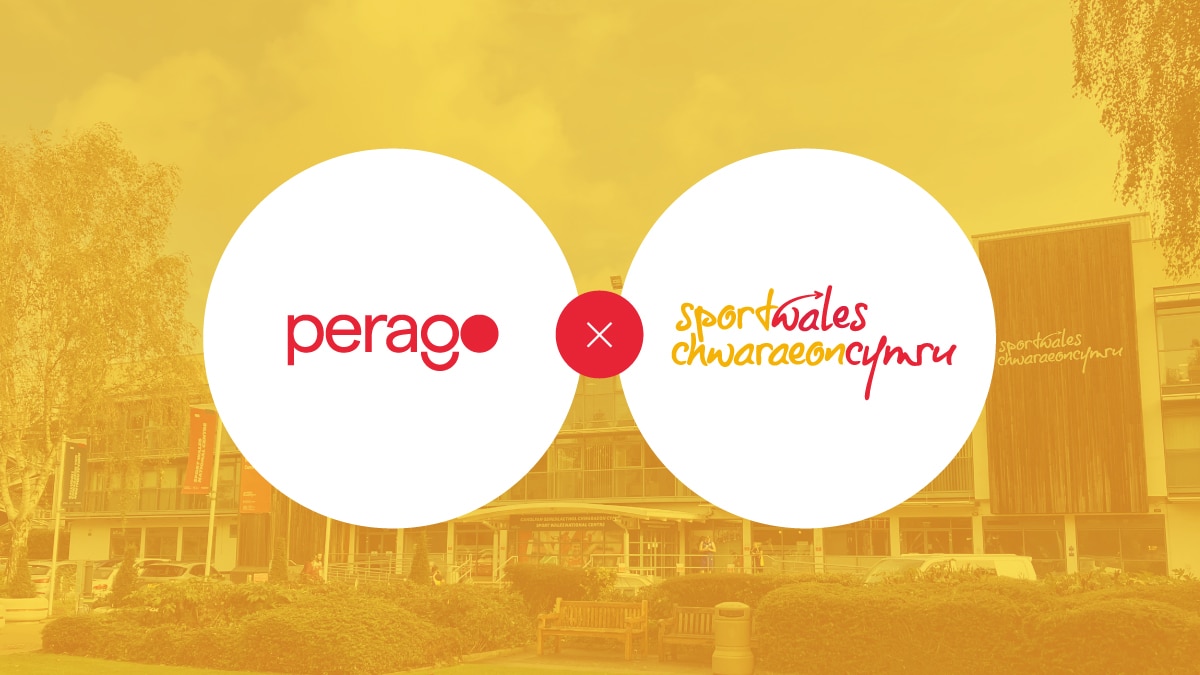The Transformation ‘Gotchas’
7 min read Written by: Victoria Ford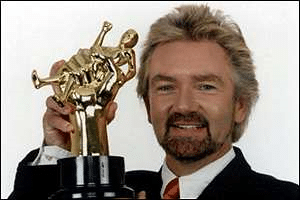
When I was asked to guest blog some thoughts on change management I initially thought I’d wax lyrical about PROSCI and ADKAR (Awareness, Desire, Knowledge, Ability and Reinforcement) and how we need to elevate Change Management as a profession not something any gifted amateur can have a go at and how we need more qualified organisational psychologists.
I started to think about my own career in change management and how probably the most effective tool (apart from ADKAR of which I am a very big fan!) is the very unscientific but simple ‘Gotchas’ approach I came across when at Lotus Consulting back in 1995.
Gotchas was a core tool in the agile method Lotus used back then called the Accelerated Value Method (AVM – very similar to today’s zeitgeisty SCRUM). In essence it is a memorable way to label the likely barriers to change such that you can keep them top of mind and put plans in place to address them (mainly within the D activities in ADKAR).
The core set most commonly found are illustrated (from an old Freelance Graphics presentation!) below:
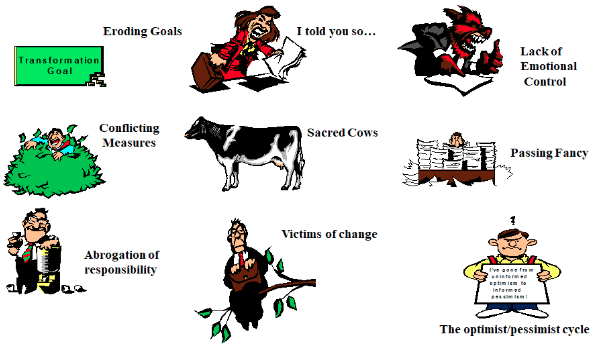
So here are two short stories of a past and present Gotcha which I think illustrate that whilst the technological innovations may be different today than they were 22 years ago people are people and the Gotchas remain.
The basic approach is to workshop with the core change team which Gotchas are likely to derail the project and what we might do to prevent them (focus is on the people Gotchas but they can be used as a fun way to populate risk registers also).
My ‘past’ story is one of abject failure – back in 1996 – I was full of naïve enthusiasm for my role as a change manager on the rollout of a new workflow system for a large pharmaceutical company. The project seemed to be going well and had senior stakeholder buy-in, in fact one of the most senior managers of the largest rollout area volunteered to lead the change (a real change leader as McKinsey would frame it).
What I failed to spot was that the ‘system’ we were replacing in the senior managers area (an old paper card slotted wall board – a physical Trello) was designed by the ‘real change leader’ himself and was in fact a Sacred Cow. Long story short, we built the new workflow system and rolled it out in every division except his!
A key lesson learnt from this (which I still apply today) is to check the motivation and desire of the change champions that volunteer (or are volunteered) on your projects. Use anti-stories to take the perspective of stakeholders who might really want the project to fail and feed these into your D (Desire) planning activities.
Fast forward to today and I’m working on a large transformation programme using SAFe (the scaled agile framework). I am no longer naïve (but still I hope full of enthusiasm!) and so I ran a Gotchas workshop with my core team – and guess what – we have a Sacred Cow…or rather two Sacred Cows. Just being aware of this means we can make sure that our plans to build desire to change are not based on simple messages that assume that people really want the new system – even those that are part of change team and say they do! Knowing this doesn’t make our task easier, but it does give it a better chance of success as now we are planning to get a deeper understanding of what it is about these existing systems that people like, how we can fuel a real desire to replace them with something better and begin to personalise our stakeholder engagement WIIFMs (what’s in it for me). The agile approach will help with this as we can demonstrate visible progress regularly and ‘show not tell’ the value of the new system…
…so 22 years later what I have learned about change management?
Two things:
- The only thing you know about your baseline change plan is that is NOT what will happen (so embrace agile change)
- The Gotchas may still get you but you stand more chance if you can see them coming!
The first guest blog for Perago-Wales from long time friend, colleague and associate Michael Stephenson. Mike is a seasoned change management professional with over 30 years experience.
